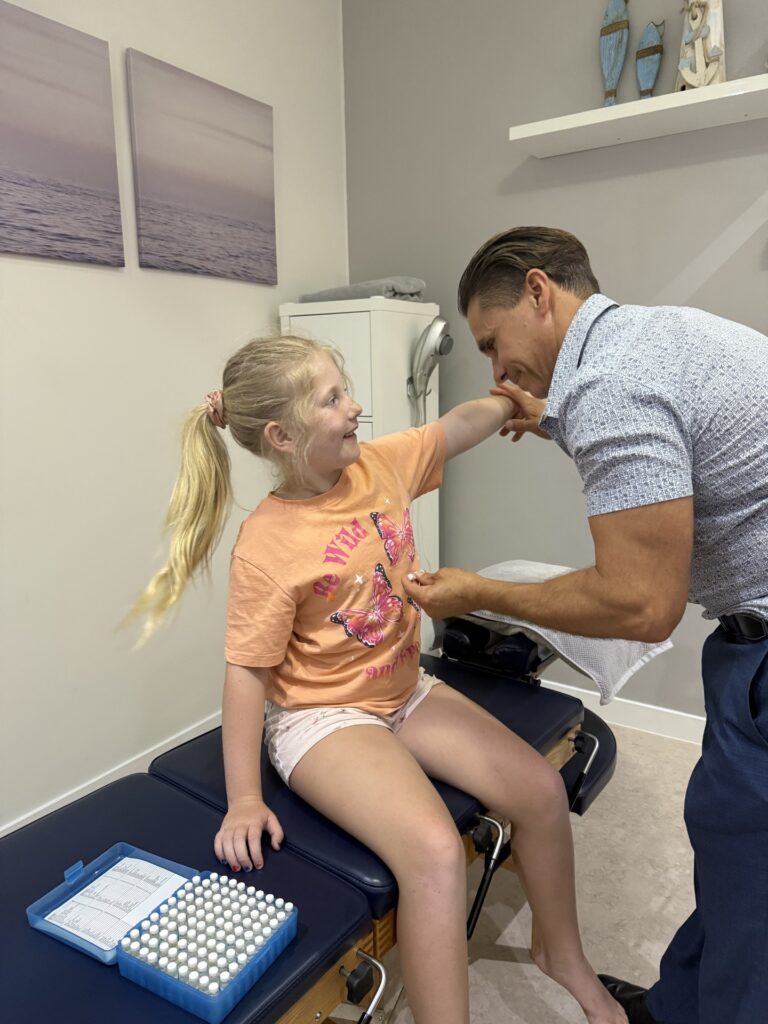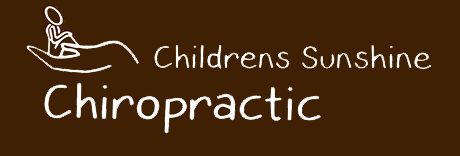Applied Kinesiology (AK) is a technique used by some chiropractors, nutritionists, and other healthcare practitioners to help evaluate the health of the body through muscle testing. One of the applications of this method is food muscle testing, where a practitioner assesses how the body responds to specific foods or nutrients. This technique may be used to help suggest certain foods may be causing an issue within the body.
What is Applied Kinesiology?
Applied Kinesiology is a system that combines elements of chiropractic, nutrition, and traditional Chinese medicine with manual muscle testing. The idea behind AK is that the body’s muscles can reflect its internal health, and muscle strength or weakness may help identify imbalances in the body, such as food which may increase the likelihood of causing issues within the body.
During an AK session, a practitioner manually tests the strength of various muscles. They may press on a muscle while the patient resists the pressure. This can also be done with babies or infants by having them sit on their mum’s lap and using mum’s arm (Surrogate Testing). The response of the muscle—whether it stays strong or becomes weak—is believed to provide insight into the body’s functional status and its reaction to different stimuli.

Using Food During Muscle Testing?
Food muscle testing is a specific application of applied kinesiology. In this test, practitioners assess how the body responds to specific foods or nutrients by observing changes in muscle strength. Here’s how it typically works:
- Testing Specific Foods
- The practitioner may ask the patient to hold a food item, nutrient supplement, or even a sample of the food in a vial near their body. Some practitioners may also ask the patient to place the food in their mouth or think about it.
- Muscle Strength Assessment
- The practitioner applies gentle pressure to a muscle while the patient tries to resist the push. If the muscle weakens in response to the food, it may suggest that the body may have an issue with that food.
- Interpretation of Results
- Based on the strength or weakness of the muscle, the practitioner may recommend further testing. The goal is to identify foods that may be causing inflammation, digestive issues, or other health problems.
How Does Testing Muscles Using Food Actually Work?
The theory behind food muscle testing is based on the idea that the body’s energy fields interact with external substances. In applied kinesiology, it’s believed that when the body is exposed to a substance it is sensitive to, then the body’s energy weakens, which is reflected in a weakening of the muscles.
While AK practitioners believe this method may help uncover food sensitivities, it’s important to note that muscle testing is not widely accepted as a scientifically proven diagnostic tool in mainstream medicine. Many traditional medical professionals rely on more conventional allergy tests, such as blood tests or elimination diets, to identify food sensitivities.
What to Expect During a Food Muscle Testing Session
During an applied kinesiology session, your practitioner may use a set of food vials or foods themselves near the chest ( solar plexus) and test one of your muscles ( usually shoulder muscle), observing how it responds.
For babies or kids that are not able to hold muscle strength consistently, this is done on mum. Mum holds one of her hands on their baby/child and her other arm muscle is tested. The vial or food is held near the baby/child’s chest (solar plexus).
The process is typically quick, and many patients find it to be a comfortable experience. After the testing, the practitioner will interpret the results and may provide recommendations or referral based on your body’s reactions to the foods tested.
Is Food Muscle Testing Right for You?
If you’re experiencing symptoms such as bloating, digestive issues, skin problems, or fatigue that you suspect may be related to your diet, food muscle testing could provide some insight into potential foods. However, it’s important to remember that applied kinesiology is a complementary approach and should not replace conventional medical care.
Experience Applied Kinesiology at Children’s Sunshine Chiropractic
At Children’s Sunshine Chiropractic, some of our practitioners offer applied kinesiology as part of our holistic approach to healthcare.
Contact us today at (07) 5491 7743 to schedule an appointment at our Caloundra or Buderim locations.
